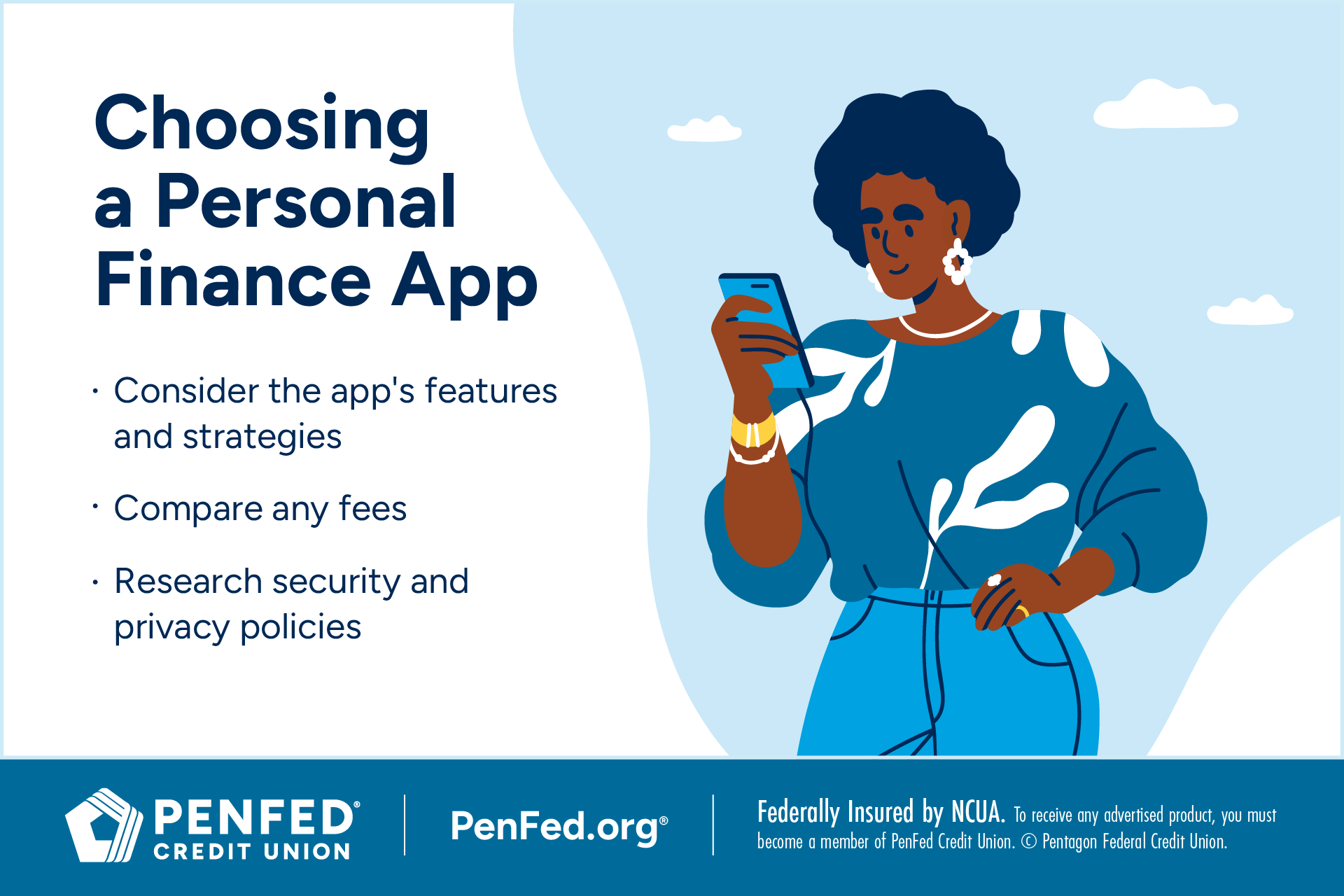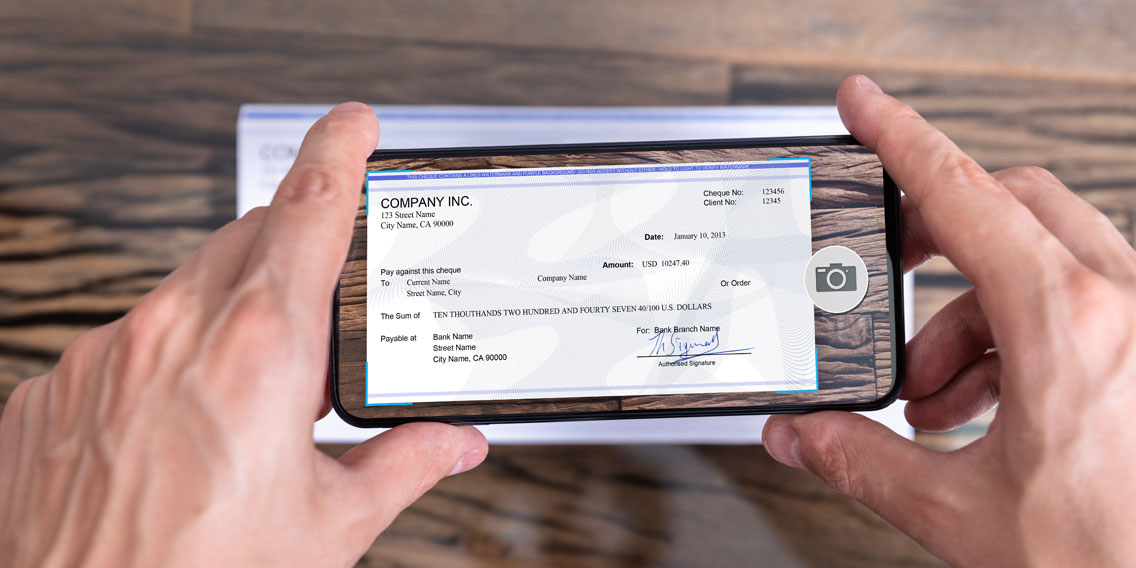Personal Finance
5 Next Level Personal Finance Apps
What you'll learn:Discover 5 personal finance apps to help with budgeting and credit score management.
EXPECTED READ TIME: 7 MINUTES
Managing your finances can be a challenge. While many people understandably start with a simple mobile banking app, there are personal finance apps out there that can take your money management to the next level.
Mobile banking apps provide an easy way to deposit checks, pay bills, and quickly view account balances, but they typically don't go beyond that. Some of the best personal finance apps can help you with budgeting and credit management. Adding those apps to your arsenal might be the missing piece of the puzzle for you.
What We’ll Cover

Budgeting Apps
While it’s easy to create a personal budget, sticking to one can be hard, especially when autopay, digital wallets, and tap-to-pay features make spending money almost too quick and effortless. In fact, Capital One reports that as of August 2024, 47.8% of American adults make no cash purchases in a typical week.
Fortunately, technology can also help you stay on budget. Here we review five personal finance apps that can help you manage your money better:
Goodbudget
At a glance:
- Based on the envelope budget system
- Offers useful reports and charts
- Track transactions manually
- Choose from free or paid versions
Goodbudget is based on a cashless envelope budget system, where you sort your expenses into categories and divide your income across those categories. It’s a useful method for beginners or impulse spenders, and it offers useful reports and graphs to help you stay motivated.
Unlike other budgeting apps, Goodbudget doesn’t connect to your bank or credit card accounts. You’ll have to enter transactions, label them, and sort them manually. While that does take time, it also forces you to engage more fully in the process, which can make you more successful. You might also like this if you’re hesitant to link your bank accounts.
The free version of the app offers one financial account and up to 10 envelopes, and it stores your transaction history for one year. That’s enough to meet many people’s needs, but you can also sign up for the paid version for unlimited accounts, unlimited envelopes, and seven years of transaction history.
Honeydue
At a glance:
- Designed for couples budgeting together
- Syncs with bank accounts, credit card accounts, loans, and investments
- Includes real-time transactions
- Free
Honeydue is a free budgeting app designed for couples sharing joint expenses. You can sync it with your bank and credit card accounts, loans, and investments to manage all your finances from one place.
Once the app is synced with your accounts, it will automatically track expenses. You can set up bill reminders, track spending, and even chat with your partner in the app about transactions. If you set up budget limits for your spending categories, you’ll receive notifications when you’re close to one of those limits. There’s even a way to track cash transactions.
Honeydue is a great option for getting on the same page with your partner. It offers many of the same features as leading paid apps, and it’s user friendly — great for beginner and advanced budgeters.
Honeydue offers many of the same features as leading paid apps, and it’s user friendly.
Empower
At a glance:
- See everything in one place
- Sync bank accounts, credit card accounts, mortgage, investments, and retirement accounts
- Track your net worth
- Multiple long-term financial planning tools
- Free with optional, add-on paid services
Empower is a great option if you want to see your entire financial situation in one place. Sync it to your bank accounts and credit cards and you’ll be able to create a budget, track your spending, and categorize transactions to track spending in specific areas. But you can also connect your mortgage, investments, and retirement accounts, too.
While it doesn’t have all the bells and whistles of dedicated budgeting apps, its focus on investing makes it a winner for those who have mastered the basics of budgeting and are turning their attention to wealth building. It features specific education and retirement planning tools other apps don’t. It’s free to use the basic app, but you can add their investment management services for a fee.
Empower features specific education and retirement planning tools other apps don’t.
Credit Report Apps
Your credit report is a record of your credit and how you use it. It lists the amount of credit you have available, how much of that credit you’ve used, and your payment history. All that information gets calculated into a credit score.
A good credit score can help you get approved for loans and get more competitive rates on those loans, so it’s important to monitor that number and make financial decisions that will improve it. You can request a free copy of your credit report annually, but if you’re working to improve your credit score then a credit reporting app could be the way to go since you’ll be able to track your credit more regularly.
Experian Mobile App
Experian is one of the major credit bureaus that records credit history and calculates credit scores. Their mobile app lets you monitor your FICO and Experian credit reports, which are updated in the app monthly. In addition, you can sign up for real-time alerts on credit inquiries, balance changes on your accounts, missed payments, and fraudulent activity.
One downside of the app is it’s full of credit card and loan offers based on your credit score, but it does offer useful tools for freezing your credit and disputing errors in your credit report. There’s even an option for connecting your bank accounts to manage your income and expenses and track financial goals.
The app’s most powerful feature is Experian Boost, a tool that allows users to build credit using bills that aren’t usually reported to credit bureaus such as streaming subscriptions, cell phone bills, and even utilities. This is especially useful for users with poor or little credit history who want to build credit without credit cards.
The Experian mobile app offers useful tools for freezing your credit and disputing errors in your credit report.
Credit Karma
Credit Karma is a free credit monitoring app with a few extra tools thrown in. You can view and monitor your Equifax and TransUnion scores, track your net worth, and monitor your identity for fraud or data breaches. The app also suggests ways to save money and build credit.
Like Experian, Credit Karma will suggest credit cards and loans based on your credit report. Its budgeting features are limited, but you can set up reminders and pay bills directly from the app. And its credit score simulator is a nice feature that shows how different activities, like opening a new credit card, could impact your credit score.
Both Credit Karma and Experian Mobile only show a few of the many credit scores you have. But putting them together gives you an overview of the major scores most lenders use.
Credit Karma’s credit score simulator shows how different activities could impact your credit score.
Choosing a Personal Finance App
Choices in and usage of budgeting apps have exploded in the last ten years, with new ones emerging all the time. All that choice means there’s a budgeting app out there for everyone, but it can make finding yours daunting. Here are some things to keep in mind.
Consider the App’s Features and Strategy
Budgeting can be very personal. Just because an app has good reviews doesn’t mean it will work with how you spend or think about money. There are many different strategies for budgeting, so take that into consideration when choosing an app — and try a different app if the first one you choose doesn’t suit you.
Compare Any Fees
Budgeting apps can range from $0 to as much as $15 per month/$100 per year. Take advantage of free versions or trial periods before committing so you can decide if you like an app. In some cases, the free version may offer everything you need.
Research Security and Privacy Policies
Personal finance apps are convenient, but they also store data about your personal financial information. In many cases, they have access to your bank accounts and credit cards and they track your spending habits.
For that reason, you should be careful about the financial apps you choose to share information with. Read reviews carefully and research apps online before entering any personal data.
Be careful about the financial apps you choose to share information with.
The Takeaway
Simplifying your finances helps you take control and make better, more informed financial decisions. Today’s personal finance apps can do just that. In a few clicks and taps, you can be on your way to strengthening your budget, paying down debt, boosting your credit score, and reaching your most important financial goals.
This article is for educational purposes only. PenFed is not affiliated with any of the apps mentioned in this article.
Download the PenFed Mobile App Now
Discover the security and convenience of mobile banking today.




